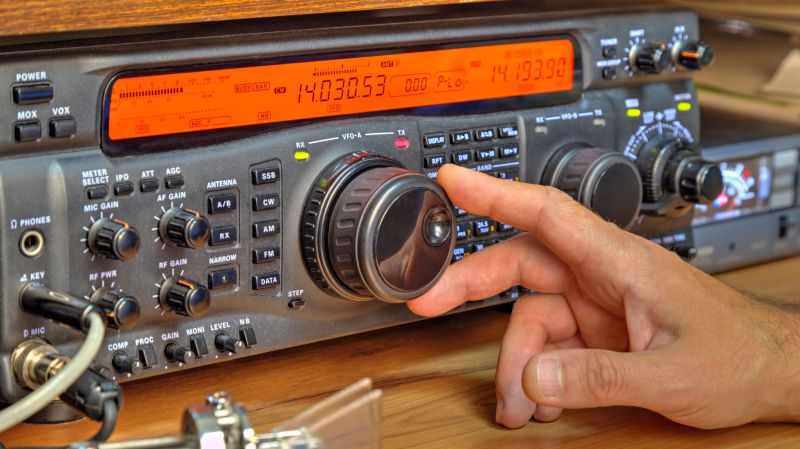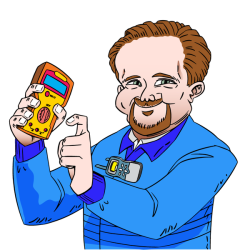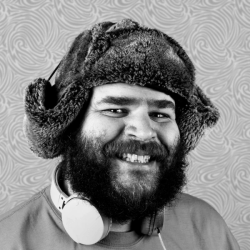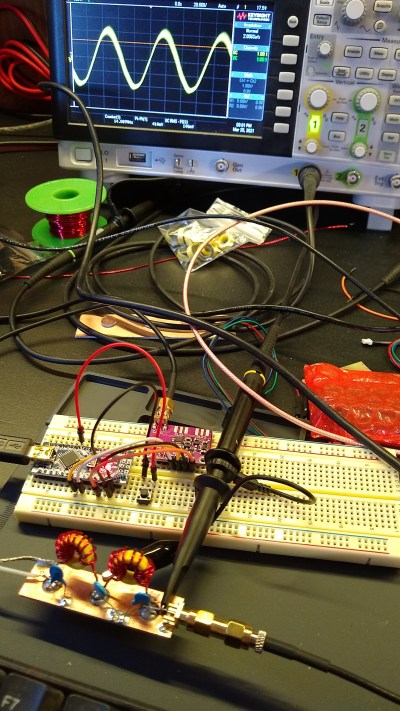
Let’s be honest — there are some not very pleasant stereotypes associated with amateur radio, at least if you ask outsiders. Hams are often thought of as being in two camps: old guys who can’t figure out modern technology or conspiracy theorists who think their knowledge of radio will give them an edge after the world becomes a post-apocalyptic hellscape. We’ll leave it to you to decide which is the worse brush to be painted with.
As is often the case, the best way to fight such ignorance is with education and outreach. Events like our weekly Hack Chat are a perfect platform for that, as it allows the curious to ask questions and get answers directly from subject matter experts. This is precisely why we invited Mark Hughes and Beau Ambur to helm last week’s Chat. The fact that they’re both relatively recent licensees makes them uniquely qualified to shed some light on what it’s like to become part of the ham radio community in the 21st century. As an added bonus, they’re both sharp and articulate technologists — about as far as you can get from the mental image of the doddering old granddad who prefers the simplicity of the Morse key to those newfangled smarty-phones.

The results were, quite frankly, staggering. It was one of the most lively and productive discussions we’ve seen in recent memory, which itself is a sharp rebuttal to some of the more pervasive claims about ham radio. This wasn’t a handful of grumpy graybeards bemoaning modern tech; it was a group of passionate folks who wanted to know more about the field and how getting licensed can help them with their goals and personal projects.
At the same time, it was honest. Mark started off the Chat by stating in no uncertain terms that amateur radio is a hobby dominated by older folks, and without an infusion of younger blood, it’s in very real danger of dying off. Why is that a problem? Put simply, if nobody is using the frequencies allocated for hams, it won’t be long before the governments of the world swoop in and reallocate them for whatever they please — and once that happens, getting those frequencies back is going to be a battle that hobbyists might not be able to win.
So why become a ham? Mark came prepared for that one and busted out the following bullet points:
- Connect with a global community: Engage with like-minded enthusiasts worldwide, forming friendships that transcend borders and cultures.
- Sharpen your technological skills: Dive into electronics, radio wave propagation, antenna design, digital modes, satellite communication, and more.
- Serve your community: Provide communication support during emergencies, public events, and natural disasters.
- Unlock global travel opportunities: Participate in contests, meet fellow hams worldwide, and operate from unique locations.
- Lifelong learning and personal growth: Pursue certifications, master Morse code, explore satellite operations, and more.
It’s a list that’s hard to argue with and exactly the kind of thing that prospective hams need to see. There’s more to amateur radio than sitting in a dimly lit room with headphones pressed up against your ears — although, to be fair, there’s a decent amount of that also.

Let’s say this list convinced you to get your license. Now what? Predictably, that’s where the Chat headed almost immediately. People wanted to know not just the why of becoming a ham but the how. The questions were what you’d expect; people wanted to know what class of license they should go for and how they should start the process of studying and taking the exam. Of course, there was perhaps the most common of all ham-related questions: do I really need to learn Morse code?
Determining which class of license you go for is going to depend on a lot of factors, but as one member of the Chat pointed out, even getting the lowest tier Technician class in the US means you can start experimenting with things like bouncing signals off the Moon and communicating with satellites. Not a bad way to spend a lazy weekend. As for the big question, no — the FCC removed the Morse code requirement for amateur operator licenses back in 2007. That said, while it’s no longer required, several in the Chat said it was still good to be familiar with.
For those still not convinced amateur radio is for them, Beau and others suggested picking up a cheap RTL-SDR device and cruising around the dial. No license is required to listen in, and there’s a whole world of fascinating signals out there that you can pick up and decode, ranging from your wireless doorbell to signals being beamed down to Earth from orbiting weather satellites. If hacking around in listen-only mode holds your attention, then getting licensed and being able to (legally) transmit will make things all the more interesting.

Talk of software-defined radio (SDR) took over the conversation for a while, as it’s a good example of where the technology is today compared to the earlier days of ham radio. You don’t need some dusty post-war relic to get on the air anymore. A Raspberry Pi and a handful of USB gadgets can do wonders and in many cases, may even make up the bulk of the “shack” for a modern ham.
Dan Maloney pointed out posts from his excellent “$50 Ham” series where he demonstrates these sorts of low-cost, high-tech radio projects. His Pi-based Weak Signal Propagation Mode (WSPR) beacon was a perfect example, as it offers the user the ability to make contacts all over the globe with hardware that fits in the palm of their hand and doesn’t look anything like the ham rigs of yesteryear.
That said, there’s nothing wrong with wanting a “proper” radio, and a good chunk of the discussion was taken up with hardware recommendations. While they are a bit controversial in the community, several commenters said it’s hard to go wrong with a $20 Baofeng handheld to get your feet wet. Once the bug has bitten you, expect your next radio to cost somewhere in the $150 – $300 range. Others pointed out that the radio is only half of the equation and that regardless of what you spend on it, you’ve got to make sure it’s paired up with a proper antenna.
In the end, the discussion went far beyond the standard hour and covered a dizzying array of topics. As always, we’ve got a complete transcript of the discussion up on the Hack Chat page for anyone who wants to read along — which we would highly recommend if you’re even remotely interested in ham radio.
We’d like to thank Mark Hughes and Beau Ambur for taking the time to speak with the community about the modern amateur radio experience and why it’s so important that we focus on getting the next generation of hobbyists on board. While the battle certainly won’t be won overnight, we think the buzz generated by this discussion proves that it’s a cause worth fighting for.
The Hack Chat is a weekly online chat session hosted by leading experts from all corners of the hardware hacking universe. It’s a great way for hackers connect in a fun and informal way, but if you can’t make it live, these overview posts as well as the transcripts posted to Hackaday.io make sure you don’t miss out.
0 Commentaires